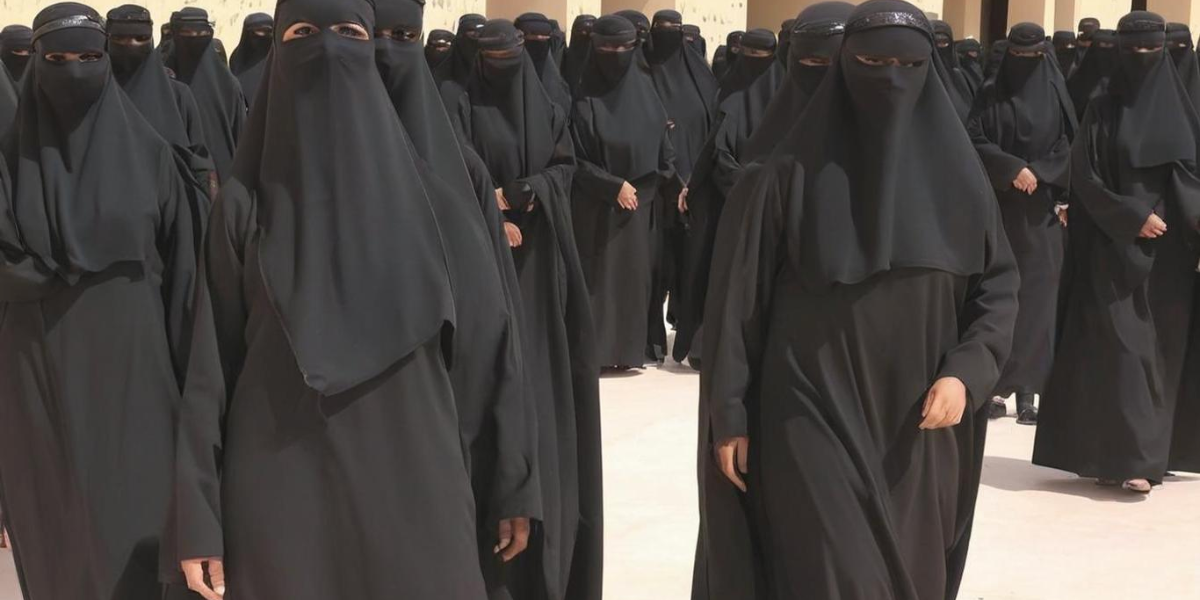
Introduction
The Kiswa, the ornate cloth covering the Kaaba in Mecca, holds immense spiritual and cultural significance in Islam. Each year, during the Hajj pilgrimage, the old Kiswa is replaced in a ceremony that has been a male-dominated tradition for centuries. However, in 2024, Saudi Arabia witnessed a historic moment when women participated in the Kiswa change ceremony for the first time. This groundbreaking event marks a significant step towards gender equality in the kingdom and reflects the ongoing societal transformations under Saudi Vision 2030.
Historical Background of the Kiswa
The Kiswa‘s history dates back to the early days of Islam. It is made of silk and adorned with gold and silver embroidery, featuring Quranic verses. The tradition of changing the Kiswa annually is a symbol of renewal and reverence. Historically, the ceremony has been conducted by a select group of men, highlighting its importance and sanctity. Over time, the practices and rituals surrounding the Kiswa change have evolved, yet the essence of this sacred duty remains intact.
The Role of Women in Saudi Society
Saudi Arabia has seen a gradual yet significant transformation in the role and rights of women. Over the past decade, numerous reforms have been introduced to empower women and integrate them into various sectors of society. From gaining the right to drive to increased participation in the workforce and public life, these changes have been instrumental in reshaping societal norms. The inclusion of women in the Kiswa change ceremony is a testament to these progressive steps.
The Decision to Include Women in the Ceremony
The announcement of women’s participation in the 2024 Kiswa change ceremony was met with a mix of anticipation and curiosity. The decision aligns with the broader goals of Saudi Vision 2030, which aims to enhance women’s roles in all facets of life. Public reactions ranged from enthusiastic support to cautious optimism, while religious authorities emphasized the importance of maintaining the sanctity of the ceremony. This decision is a symbolic gesture of inclusivity and progress.
The Ceremony of 2024
The 2024 Kiswa change ceremony was a momentous event. Women, alongside men, engaged in the intricate process of replacing the old Kiswa with the new one. Their roles varied from logistical support to participating in the actual draping of the Kaaba. Key figures in the ceremony included religious leaders, government officials, and prominent women who have been at the forefront of advocating for gender equality. This collaborative effort highlighted the unity and collective reverence for this sacred ritual.
Impact on Saudi Society
The participation of women in the Kiswa change ceremony resonated deeply within Saudi society. Media coverage was extensive, with positive public reactions reflecting a shift in societal attitudes towards women’s roles in religious and cultural practices. Statements from female participants emphasized the honor and spiritual fulfillment they felt. This event is seen as a catalyst for further gender integration and empowerment in the kingdom.
International Reactions
Globally, the inclusion of women in the Kiswa change ceremony was hailed as a progressive step. International media outlets and prominent figures praised Saudi Arabia for this historic move. Comparisons were drawn to similar milestones in other Islamic countries, highlighting a broader trend towards gender inclusivity in religious practices. The event garnered support from various international organizations advocating for women’s rights and gender equality.
Interviews and Personal Stories
The personal stories of the women who participated in the ceremony added a deeply human element to this historic event. Interviews revealed their profound sense of responsibility and pride in being part of such a significant tradition. Many spoke of their lifelong aspirations and the fulfillment of their dreams through this participation. These narratives underscore the personal and societal impact of this landmark event.
Future Implications
The inclusion of women in the Kiswa change ceremony sets a precedent for future religious and cultural practices in Saudi Arabia. It opens the door for greater female participation in various aspects of religious life, encouraging the next generation of Saudi women to aspire for more significant roles. This event is a stepping stone towards more inclusive and egalitarian practices in the kingdom, with far-reaching implications for gender equality.
Conclusion
The participation of Saudi women in the Kiswa change ceremony is a historic milestone that reflects the kingdom’s ongoing journey towards gender equality. This event is a powerful reminder of the progress made and the potential for future advancements in women’s rights in Saudi Arabia. As the kingdom continues to embrace inclusivity and empowerment, the role of women in shaping its future becomes ever more vital. This landmark moment is not just about a ceremony; it is about breaking barriers and forging a path towards a more equitable society.